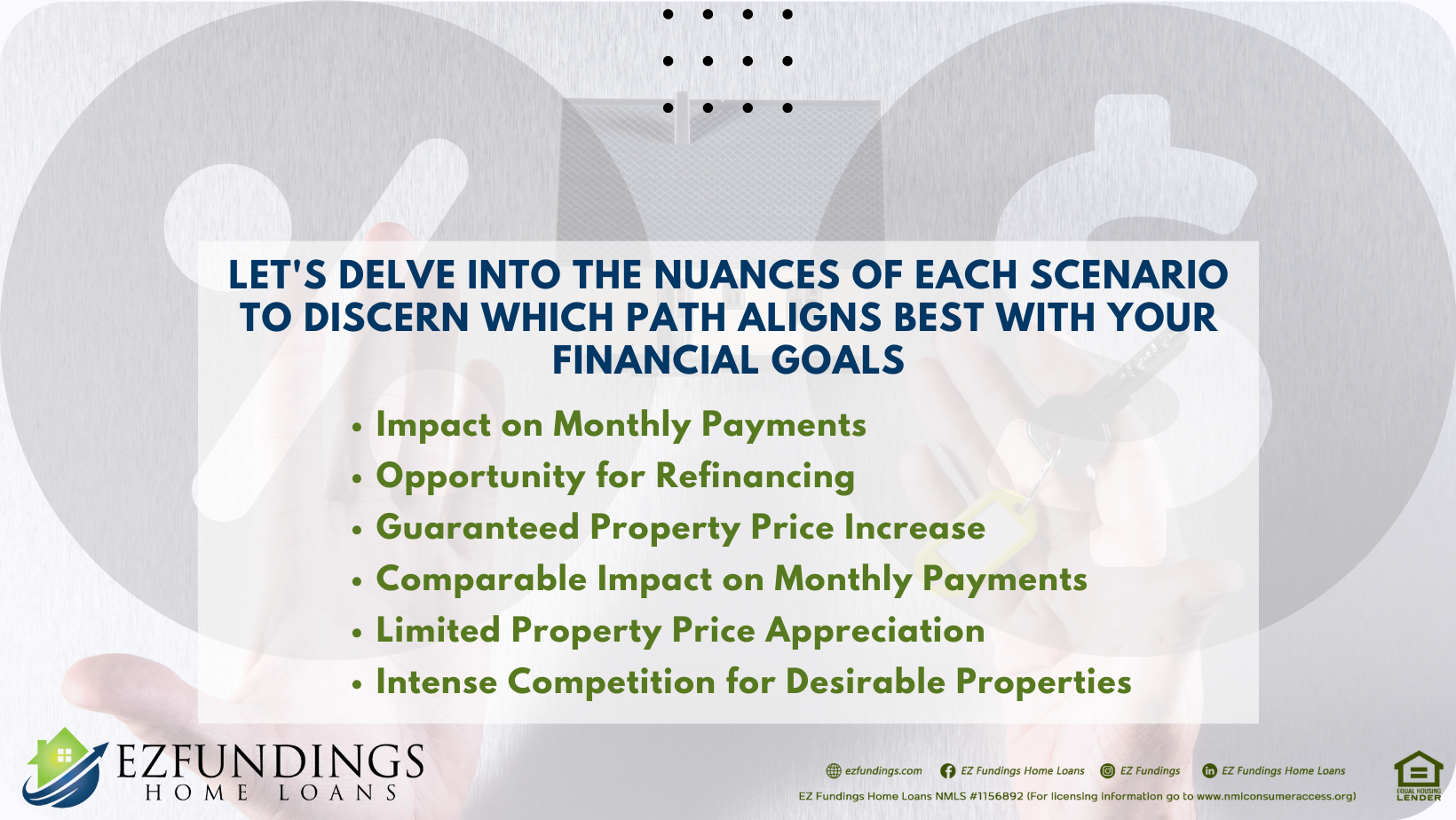Two factors wield significant influence In the realm of real estate over the financial landscape: interest rates and purchase prices. As prospective homebuyers navigate the market, they often grapple with the decision of whether higher interest rates or higher purchase prices present a more prudent choice. Thus, let’s delve into the nuances of each scenario to discern which path aligns best with your financial goals.
Impact on Monthly Payments
One immediate concern for homebuyers is the impact on their monthly mortgage payments when considering higher interest rates. A rise in interest rates can lead to a substantial increase in the amount due each month, potentially straining the household budget. Conversely, opting for a higher purchase price with a lower interest rate may result in a comparable monthly payment, mitigating the immediate financial burden.
Opportunity for Refinancing
An advantage of higher interest rates is the opportunity to refinance when rates eventually drop. Thus, homeowners position themselves to capitalize on future market fluctuations by securing a mortgage at a higher rate. Refinancing presents an enticing prospect to lower monthly payments and potentially save thousands of dollars over the life of the loan when interest rates decrease.

Guaranteed Property Price Increase
Furthermore, higher interest rates may coincide with a period of rapid property price appreciation. In such scenarios, homeowners stand to benefit from guaranteed equity gains, offsetting the initial impact of elevated interest rates. Moreover, this combination of increasing property values and the potential for refinancing can provide a robust financial foundation for long-term investment goals.
Comparable Impact on Monthly Payments
Conversely, opting for a higher purchase price with a lower interest rate may yield a similar impact on monthly payments. The reduced interest rate can result in comparable monthly mortgage payments while the initial cost of the property may be higher. Furthermore, this equilibrium ensures that homeowners can comfortably manage their financial obligations without experiencing undue strain.
Limited Property Price Appreciation
However, one drawback of higher purchase prices is the absence of quick property price increases. Thus, opting for a higher purchase price may entail a slower rate of appreciation unlike scenarios with escalating interest rates and corresponding property value surges. This factor necessitates a long-term perspective on property investment, focusing on stability rather than rapid returns.
Intense Competition for Desirable Properties
Moreover, choosing a higher purchase price with lower interest rates may subject homebuyers to intense competition for the property of their dreams. Bidding wars and competitive offers become commonplace in markets characterized by limited inventory and high demand. Thus, navigating this landscape requires patience, diligence, and a willingness to adapt to evolving market conditions.

Get your copy of the First-time Home Buyer Guide for FREE. Click here.
Conclusion
There is no one-size-fits-all solution in the eternal debate between higher interest rates or higher purchase prices. Each scenario presents unique opportunities and challenges, shaping the financial landscape for homebuyers. Moreover, careful consideration of market dynamics and personal financial objectives is paramount whether prioritizing manageable monthly payments or positioning for long-term equity gains. Ultimately, the decision hinges on individual circumstances and preferences, guiding prospective homeowners toward a choice that aligns with their aspirations and secures their financial well-being. (Learn more by reading about “What Lenders Look for to Qualify Borrowers”.)
